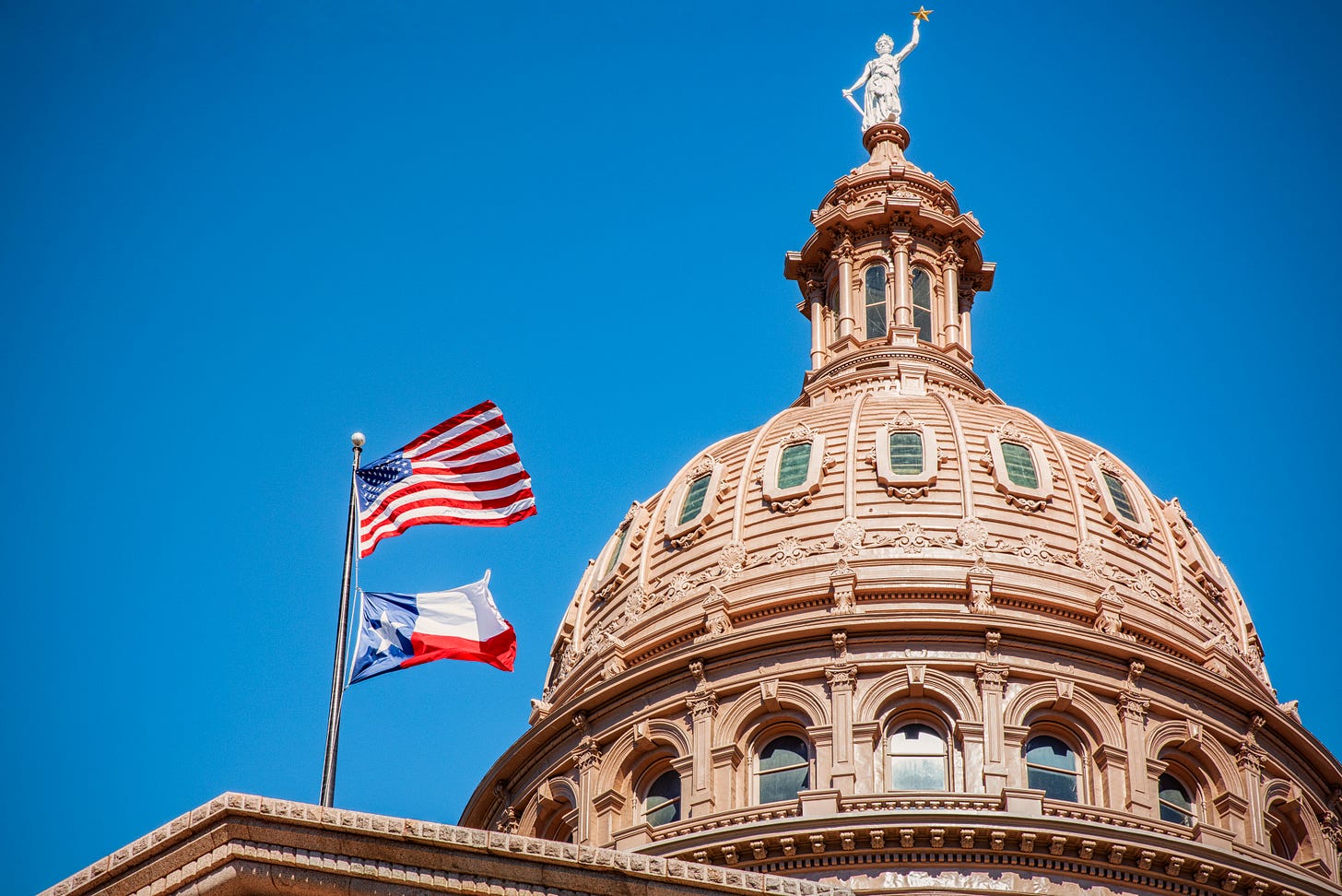Texas Implements Over 800 New Laws as Sweeping Conservative Agenda Takes Effect
Legislation touches education, gender identity, abortion access, and public safety in one of the most comprehensive legal overhauls in state history
More than 800 new laws took effect across Texas on September 1, 2025, ushering in sweeping changes that will reshape public education, redefine gender identity in government documents, restrict abortion access, and enhance criminal penalties in what represents one of the most comprehensive conservative legislative agendas in the state's modern history.
The massive legal overhaul affects nearly every aspect of Texas life, from classroom instruction to birth certificates, as Governor Greg Abbott's Republican-controlled Legislature delivered on campaign promises that have defined the state's political landscape for years. The changes come as Texas continues to serve as a national laboratory for conservative policy experimentation.
Vouchers and Classroom Restrictions
The centerpiece of the new legislation is Senate Bill 2, which establishes one of the nation's most extensive school voucher programs, providing families with approximately $10,000 per child annually to cover private school tuition and educational expenses. Students with disabilities can receive up to $30,000 in additional funding, while homeschooling families will receive $2,000 for approved educational costs.
"For the first time in Texas history, our state has passed a universal school choice bill," Abbott declared when signing the legislation, calling it "an extraordinary victory for the thousands of parents who have advocated for more choices when it comes to the education of their children".
The voucher program, set to launch in the 2026-2027 school year, represents a significant victory for Abbott after previous attempts stalled in 2023. The governor successfully backed pro-voucher candidates in Republican primaries, shifting legislative dynamics in his favor.
Rice University Professor of Political Science Mark Jones explained that public schools face the most dramatic changes. "There's a lot that relates to public education," Jones told ABC13. "We have legislation that bans pretty much all aspects of DEI in public schools".
The education overhaul extends beyond vouchers, with House Bill 2 allocating $8.5 billion for teacher compensation, special education, and early childhood learning. Additional measures include mandatory cell phone bans in schools and requirements for high school students to complete personal financial education courses.
Gender Identity Redefined in Government Documents
House Bill 229, referred to as the "Women's Bill of Rights," significantly alters how Texas defines gender in official documents. The law requires someone's sex to be determined based on their biological reproductive systems, permitting only "man" and "woman" designations on government IDs and documents.
According to the legislation, "a woman is an individual whose biological reproductive system is developed to produce ova, while a man is someone whose reproductive system is developed to fertilize the ova". The law affects all state documents, including birth certificates and driver's licenses, requiring them to reflect sex assigned at birth rather than gender identity.
The measure could impact up to 120,000 transgender Texans by requiring state documents to align with biological sex rather than gender identity. Critics, including the ACLU, have called it "a cruel and targeted attempt to erase trans, nonbinary, and intersex Texans." At the same time, supporters argue it protects women in sports, schools, and shared spaces.
State Senator José Menéndez, a Democrat, criticized the legislation as "state-sponsored discrimination," telling The Texas Tribune that forcing non-binary Texans "into categories that don't reflect their lived experiences or identities amounts to discrimination in practice".
Abortion Access Further Restricted
Texas strengthened its abortion restrictions with Senate Bill 33, which prohibits cities and counties from funding programs that help people travel out of state for abortion services. The legislation targets municipalities with voter-approved programs that previously provided funds for travel, meals, lodging, and other expenses for those seeking abortion care.
This expansion of Texas's existing abortion ban represents another layer in the state's comprehensive restrictions on reproductive rights, further limiting options for residents seeking abortion services.
Enhanced Criminal Penalties Target Emerging Crimes
The new laws address evolving criminal threats with enhanced penalties. House Bill 1902 makes "jugging" – the practice of targeting bank customers making withdrawals and following them to steal their money – a first-degree felony punishable by a minimum of five years in prison.
Other criminal law changes include upgrading intoxication manslaughter involving multiple victims to first-degree felonies under Senate Bill 745, and increasing penalties for organized retail theft under Senate Bill 1300. A new Financial Crimes Intelligence Center will coordinate the state's response to payment fraud and credit card skimming operations.
Foreign Land Purchase Restrictions
Senate Bill 17 bars individuals, companies, and government-affiliated entities with ties to China, Iran, North Korea, and Russia from purchasing most Texas real estate, including homes, commercial property, and farmland. Visa holders from those nations may purchase one residence but no additional properties, with violations carrying criminal penalties and steep civil fines.
Implementation and Legal Challenges
The sweeping legislative changes face ongoing legal challenges, particularly regarding the Ten Commandments display requirement in public schools, which remains temporarily blocked in some districts. A lawsuit challenging the foreign land purchase restrictions is pending at the U.S. Court of Appeals for the Fifth Circuit.
As Texas implements these transformative laws, the state remains a focal point for national political debates over education, gender identity, and reproductive rights. The legislation's broad scope ensures that virtually every Texan will encounter changes in their daily interactions with state government, marking September 1, 2025, as a pivotal date in the state's ongoing conservative transformation.
The comprehensive nature of these reforms reflects Abbott's successful consolidation of Republican control over the Legislature. It represents the culmination of years of political battles that have defined Texas politics throughout the decade.



